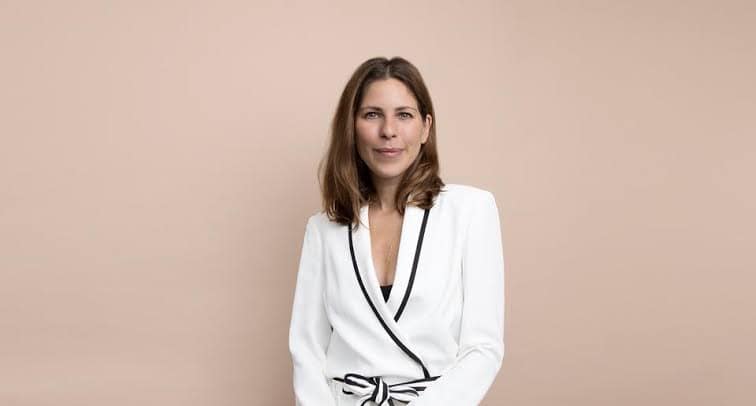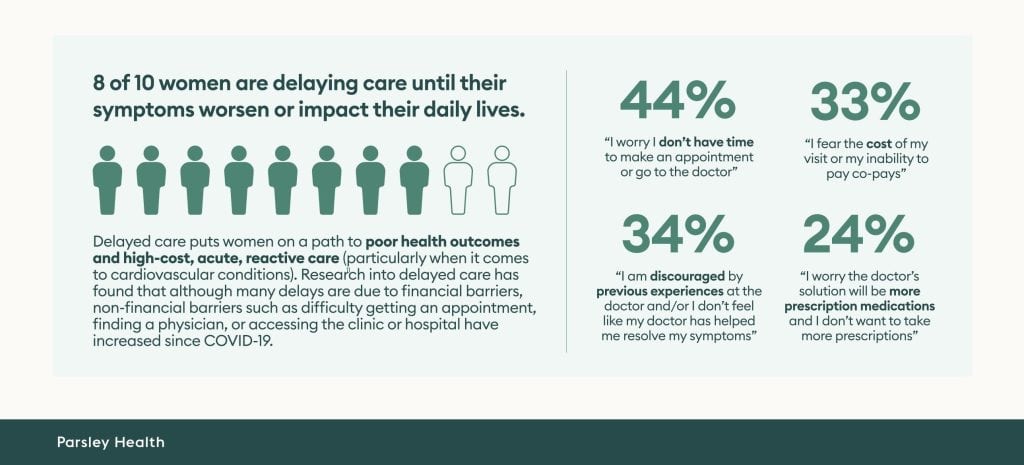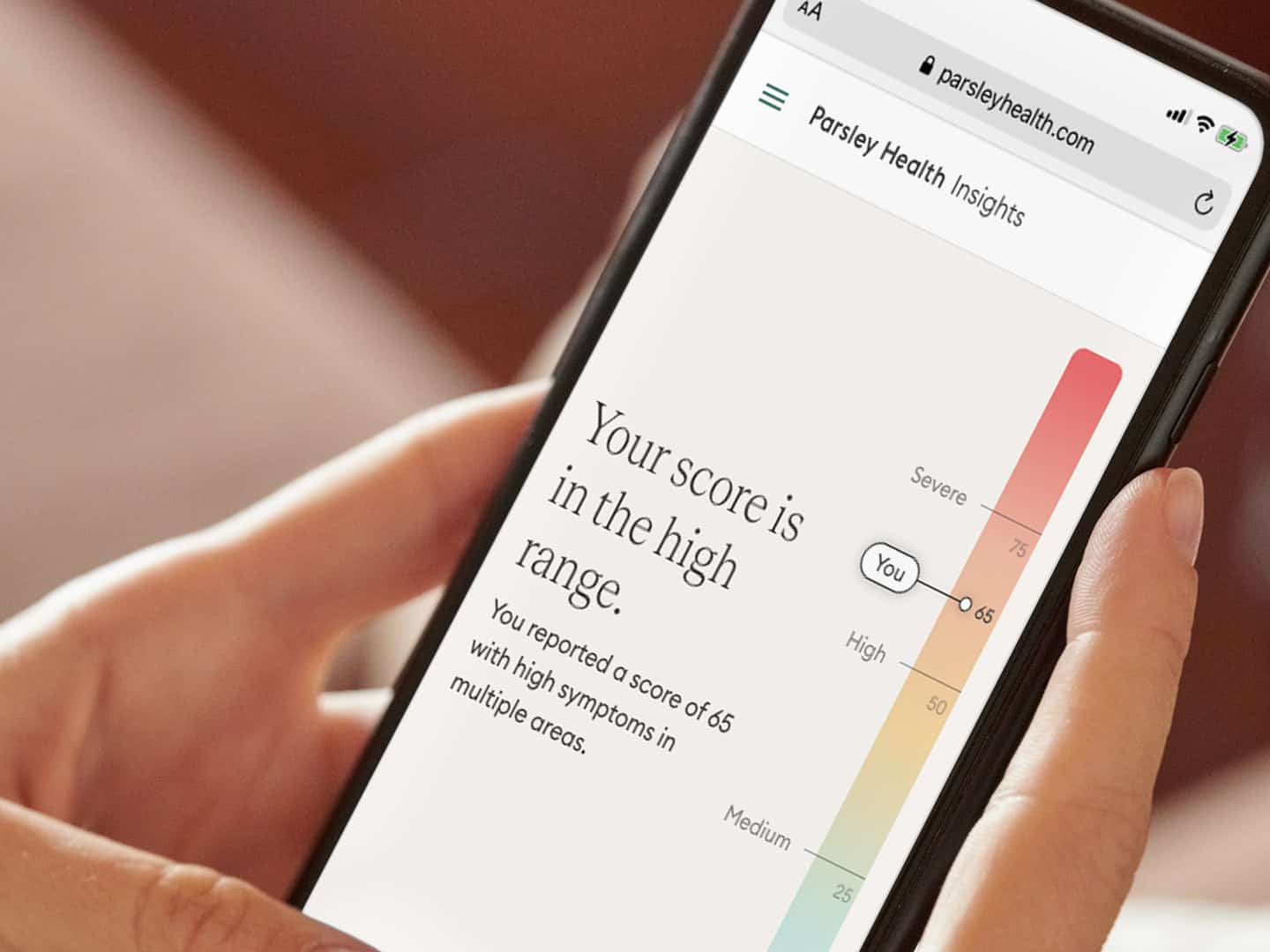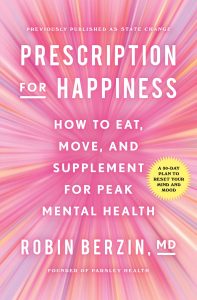Perspectives

7wireVentures Presents: Top of the Ladder Featuring Parsley Health Founder and CEO Dr. Robin Berzin
Dr. Robin Berzin is the Founder and CEO of Parsley Health. Parsley Health uses root cause medicine to drive powerful outcomes and lower costs for patients with complex health needs. At Parsley, patients see the whole picture of their health and experience accessible, supportive care from providers uniquely trained to identify and address the root drivers of illness. Dr. Berzin is also the author of Prescription for Happiness: How to Eat, Move & Supplement for Peak Mental Health.
We connected with Robin to learn more about her morning routine, her journey to building a category defining healthcare business, and much more in our latest Top of the Ladder feature.
When you were a child, what did you want to be when you grew up?

My career ambitions ranged from ballerina to marine biologist as my kindergarten and 5th grade choices, respectively. So I wasn’t someone who knew exactly what I wanted to do after college and I took a couple of years working in New York to figure it out.
My first two jobs after college were as a paralegal at the US Attorney’s office (where I learned that I was not destined for law) and then as a research coordinator at NYU’s School of Medicine. The contrast between the two environments combined with real work experience clarified what mattered most to me: population health, science, technology, and helping people.
From there, medical school became an obvious choice. But had you asked me growing up if I planned to become a doctor or a serial startup founder, I would have probably said a resounding no to both!
What does your morning routine look like?

Mornings are busy in our house with three young children and two dogs. Between getting ready for work, getting three kids dressed for school, and making three healthy breakfasts and lunches, there is not a lot of time. Because of this and because of the health benefits, I am an intermittent faster.
For breakfast, I usually have a double espresso blended with cinnamon and MCT oil or coconut oil. The MCT oil, which occurs naturally in coconut oil, sends my brain ready-to-use fuel and healthy fats, and the cinnamon blunts any blood sugar response from the caffeine. Also, most people don’t realize espresso has less caffeine than drip coffee. This is my only caffeine of the day – after that, it’s water only.
You’ve had an illustrative career in healthcare, holding various roles from physician to adviser to Founder. What ultimately inspired you to lead a business in the digital health space?



I’ve always been someone who sees problems and has a desire to fix them at scale. I started my first digital health company, Cureatr, in medical school to improve how providers communicate and make collaborative clinical decisions. My co-founder and I observed that landlines, pagers, and fax machines were a thing of the past. Still, no one had built a modern tool to fill the gap. So, we set out to do just that.
From there, I was inspired by my passion for public health, primary care, treating chronic diseases, health optimization, and functional medicine. The source of this passion was my grandmother, who died unnecessarily early from colon cancer when I was in college. Her premature death was caused by two top risk factors for colon cancer: she smoked cigarettes, and she ate the Standard American Diet (SAD). To top it all off, her primary care had failed to ensure she got a colonoscopy on time – a life-saving precaution.
Her story was what inspired me to go into medicine. Later in my training at Columbia and Mount Sinai, I saw the gap in our system when it comes to chronic conditions: we could actually help people modify or reverse many of these conditions through a paradigm shift in the way we think about care, called root cause medicine, but our current system is still built on a reactionary model of care. I decided to create a tech-enabled service in Parsley to catch these patients and help them get better while reducing the cost of care.
While employers and Parsley are pursuing healthcare solutions that serve the needs of the entire workforce – men and women both – women’s healthcare in particular is being grossly underserved. What are ways digital health can address the current disparities in care for women?

Parsley recently surveyed 1,200 women in the workforce aged 18-60 to understand how they experience their health and healthcare, and the results were astounding.
Over 40% have missed a day of work in the past 60 days for a health reason. And 80% of women report delaying care until their health seriously affects their lives. Why? Our survey shows it’s because: they worry they don’t have time, they’ve been discouraged and dismissed in the past, they’re tired of just being given a pill, and they fear the cost.
What we heard loud and clear in this report is that women want a home base that cares for multiple health needs beyond reproductive health so that they don’t have to deal with so many referrals. They want the convenience of telehealth-based care that meets them where they are in their homes or workplaces, and they want a doctor who listens – who does the proper tests, who takes the time to understand them as a whole person, and who connects the dots across their health goals, conditions, and lifestyle.
We also heard they want this kind of care covered by insurance and don’t feel that the benefits they have covered today meet their needs.
If we don’t get healthcare right for women, we don’t get it right for anyone. Women are 60% of our workforce today, driving 80% of healthcare spending and using 2X the healthcare dollars than men, and they are the chief medical officers of our homes and communities.
Parsley Health takes a more nuanced approach to treating its members than is experienced in a typical doctor’s visit. Parsley’s care team incorporates both conventional medicine and root cause resolution medicine to effectively address health concerns. How would you describe root cause resolution medicine for those of us who are not familiar with the practice?

Parsley Health is the nation’s leading pioneer in root cause medicine. For those unfamiliar with this approach, it’s an evidence-based paradigm shift in how we think about diagnosing, treating disease, and optimizing health and wellbeing.
For example, you don’t have a migraine headache because you have an ibuprofen deficiency – that does not medically exist. You have a headache because you are dehydrated, you have a dairy sensitivity, you have chronic stress and caffeine overuse, you have uncontrolled high blood pressure, or you have a magnesium deficiency – amongst other root causes.
At Parsley Health, we have built a proprietary health risk assessment that assesses root causes across clinical history, symptom severity, social determinants of health, and diagnostic testing that looks at the body and its environment as an ecosystem. We then leverage this data set to identify and treat the root cause drivers of today’s top chronic conditions, driving 80% of our rising healthcare costs. Next, we support the patient through a combination of provider visits, health coaching, digital engagement, and asynchronous care to take steps to address their condition holistically over time. While, of course, also referring to specialists as needed and prescribing medications. But we make sure that’s not our first and only step.
This allows Parsley to be a “super solution” – managing multiple chronic conditions and symptoms with one program and care team – that yields in superior results, namely a 32% reduction in the total cost of care, which has been independently validated.
We are proud to have led Parsley Health’s recent financing round! Can you share a bit about what excites you about the future of the company and what users can expect in the coming months?
So much goodness in the works!
First, we are building out a more robust digital experience that will enhance engagement, outcomes, and margins at the same time.
Second, we are expanding the accessibility of our offering to patients through self-insured employers and health plans. We already have 10M covered lives launched, and this population of patients is growing 250% YoY. We now have 5M additional lives covered in contracting, including our first value-based contract.
And, lastly next year, we will be working with 3X the current number of employers than this past year. That gives us the opportunity to help more families.
What is your superpower?

I have two: First, building solid relationships, which are crucial in patient care and business. And second is speed. I’m pretty fast when learning and synthesizing new information and using it to take action. Given how fast technology and the healthcare industry are changing, speed is essential.
What book are you reading right now?

Harry Potter and The Sorcerer’s Stone, with my 6-year-old son. I’ve never read Harry Potter, so it’s enjoyable to experience it through his eyes.
We would be remiss to not briefly touch on your own book, Prescription for Happiness. The book provides science-backed, actionable guidance on how to optimize the body to achieve peak mental health and emotional wellbeing. What is one action anyone could take today to start their state change journey?

Exercise! It’s nature’s ultimate longevity drug and the only one with top-tier evidence. In addition, exercise is as effective for mental health as physical health – we don’t know of any other drug that treats both mind and body this effectively. This is because our bodies are designed to process emotions through movement. One study showed that 95 percent of psychiatric patients reported better mood after exercise (compared to an NIH study showing only 40-60 percent of patients reported improvement after 4-6 weeks on antidepressants).
But how you exercise also matters. Doing hour-long HIIT workouts daily may tell your brain that you are running from a lion and worsen your state of constant fight or flight (also called sympathetic overdrive). Cross-training with a balanced mix of cardio, strength building, and controlled, nervous-system balancing movements like yoga or qigong is essential for peak mental health.
Taking injuries and the unique needs of your body into account, it’s best to start with 20-minute exercises six days a week, alternating between activities like yoga, aerobic exercise, and weights so your body can rest, release, and recharge.
What is one piece of advice you would offer to other entrepreneurs?
Don’t let perfect be the enemy of really good.
Pace is everything in startups – so move swiftly, but take your time.
To move at a target pace, you often have to check your perfectionist tendencies and get really good at moving forward with 80% of the data you need to win the day.